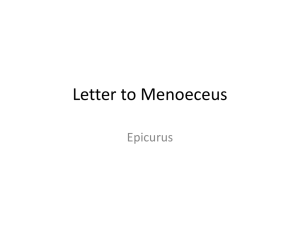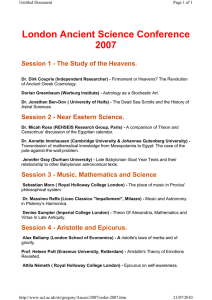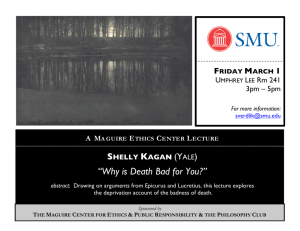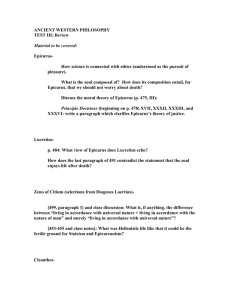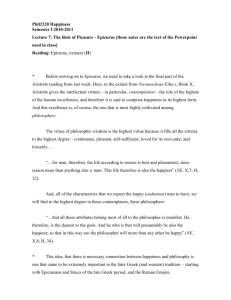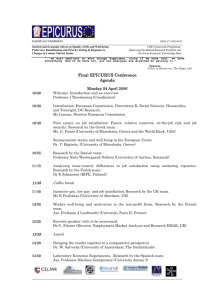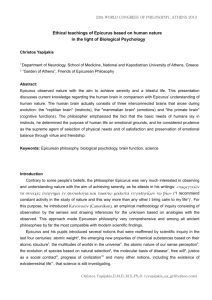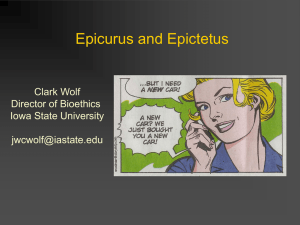EPICURUS'S EMPIRICISM Epicurus gives the
advertisement
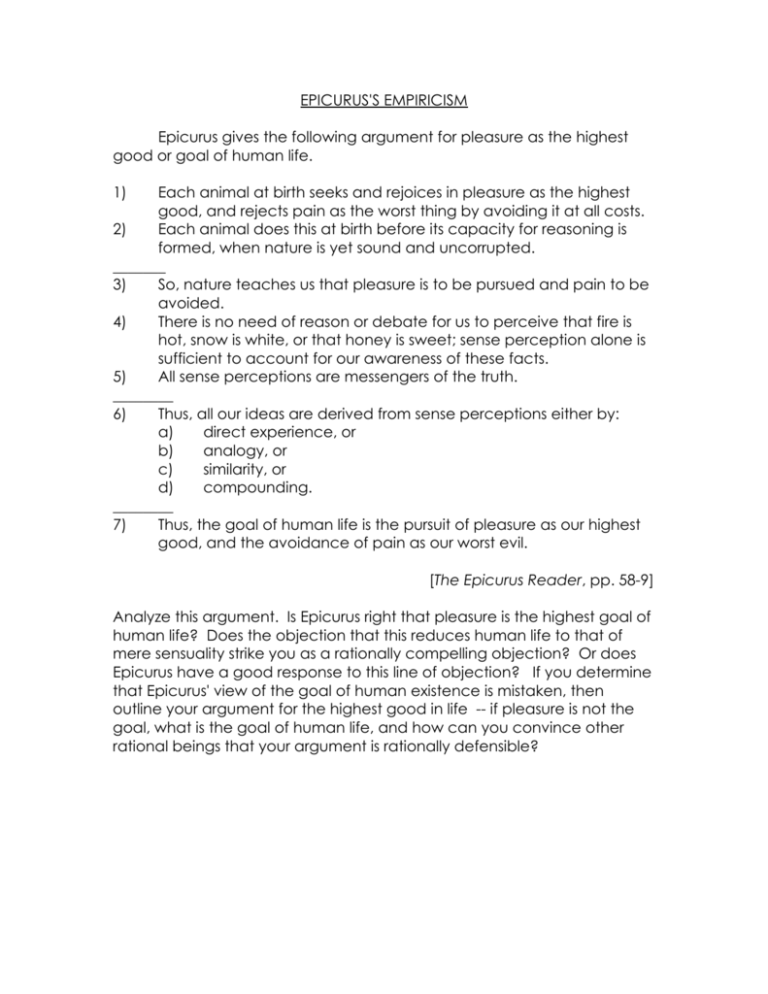
EPICURUS'S EMPIRICISM Epicurus gives the following argument for pleasure as the highest good or goal of human life. 1) Each animal at birth seeks and rejoices in pleasure as the highest good, and rejects pain as the worst thing by avoiding it at all costs. 2) Each animal does this at birth before its capacity for reasoning is formed, when nature is yet sound and uncorrupted. _______ 3) So, nature teaches us that pleasure is to be pursued and pain to be avoided. 4) There is no need of reason or debate for us to perceive that fire is hot, snow is white, or that honey is sweet; sense perception alone is sufficient to account for our awareness of these facts. 5) All sense perceptions are messengers of the truth. ________ 6) Thus, all our ideas are derived from sense perceptions either by: a) direct experience, or b) analogy, or c) similarity, or d) compounding. ________ 7) Thus, the goal of human life is the pursuit of pleasure as our highest good, and the avoidance of pain as our worst evil. [The Epicurus Reader, pp. 58-9] Analyze this argument. Is Epicurus right that pleasure is the highest goal of human life? Does the objection that this reduces human life to that of mere sensuality strike you as a rationally compelling objection? Or does Epicurus have a good response to this line of objection? If you determine that Epicurus' view of the goal of human existence is mistaken, then outline your argument for the highest good in life -- if pleasure is not the goal, what is the goal of human life, and how can you convince other rational beings that your argument is rationally defensible?
